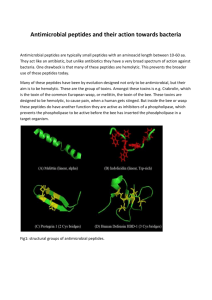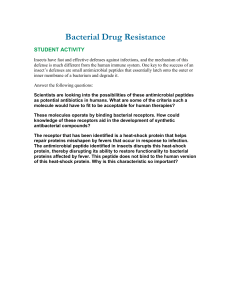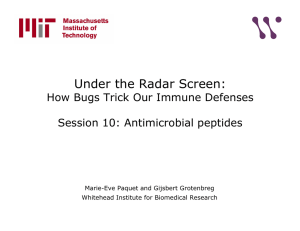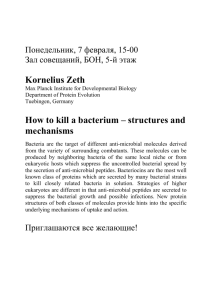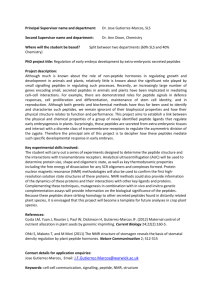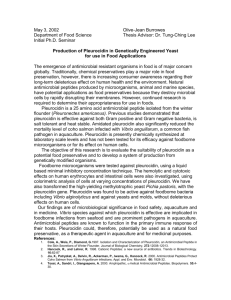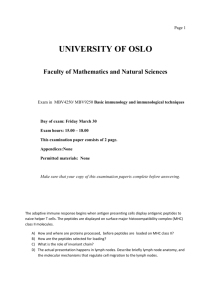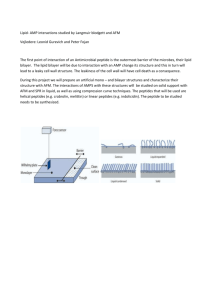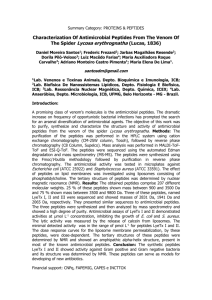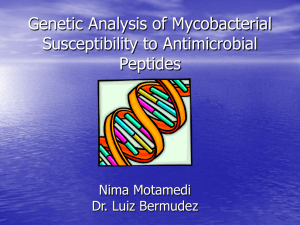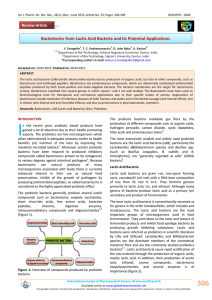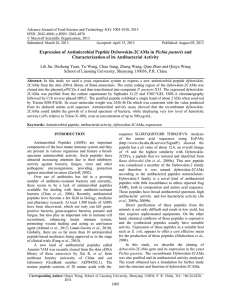antimicrobial peptides of lactic acid bacteria and their medical
advertisement
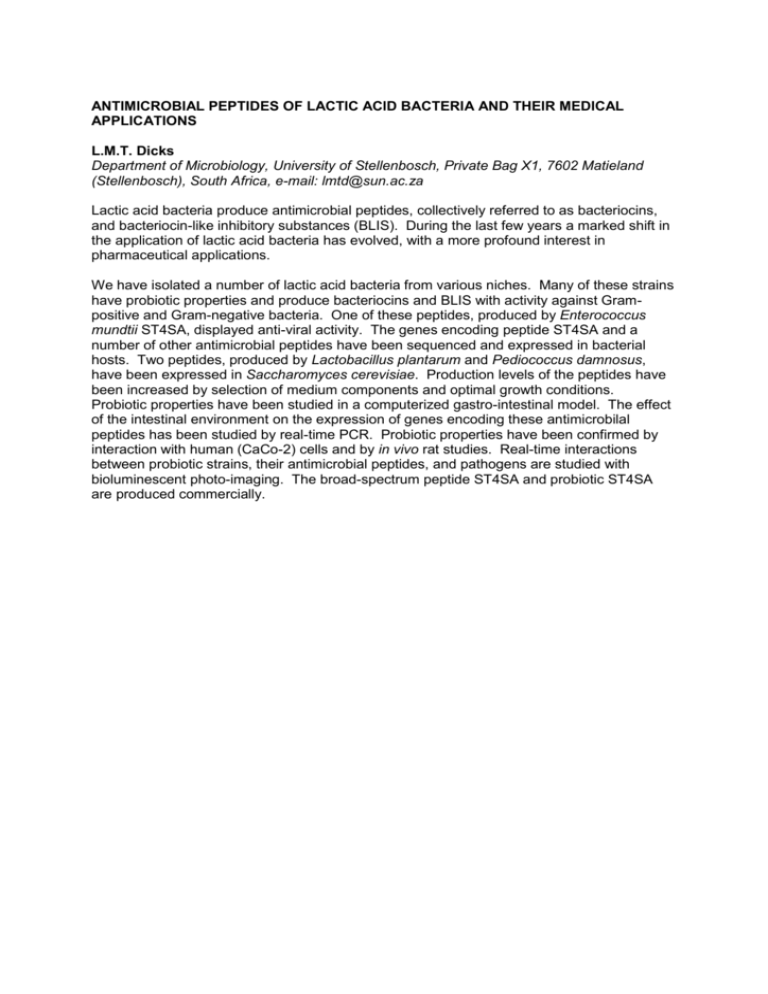
ANTIMICROBIAL PEPTIDES OF LACTIC ACID BACTERIA AND THEIR MEDICAL APPLICATIONS L.M.T. Dicks Department of Microbiology, University of Stellenbosch, Private Bag X1, 7602 Matieland (Stellenbosch), South Africa, e-mail: lmtd@sun.ac.za Lactic acid bacteria produce antimicrobial peptides, collectively referred to as bacteriocins, and bacteriocin-like inhibitory substances (BLIS). During the last few years a marked shift in the application of lactic acid bacteria has evolved, with a more profound interest in pharmaceutical applications. We have isolated a number of lactic acid bacteria from various niches. Many of these strains have probiotic properties and produce bacteriocins and BLIS with activity against Grampositive and Gram-negative bacteria. One of these peptides, produced by Enterococcus mundtii ST4SA, displayed anti-viral activity. The genes encoding peptide ST4SA and a number of other antimicrobial peptides have been sequenced and expressed in bacterial hosts. Two peptides, produced by Lactobacillus plantarum and Pediococcus damnosus, have been expressed in Saccharomyces cerevisiae. Production levels of the peptides have been increased by selection of medium components and optimal growth conditions. Probiotic properties have been studied in a computerized gastro-intestinal model. The effect of the intestinal environment on the expression of genes encoding these antimicrobilal peptides has been studied by real-time PCR. Probiotic properties have been confirmed by interaction with human (CaCo-2) cells and by in vivo rat studies. Real-time interactions between probiotic strains, their antimicrobial peptides, and pathogens are studied with bioluminescent photo-imaging. The broad-spectrum peptide ST4SA and probiotic ST4SA are produced commercially.
